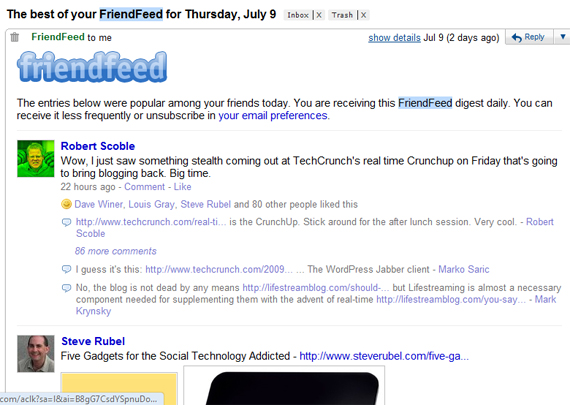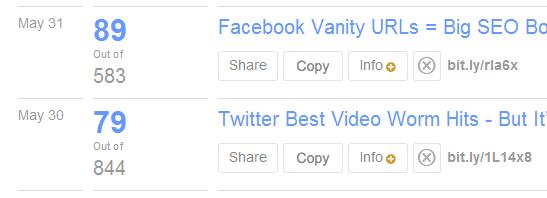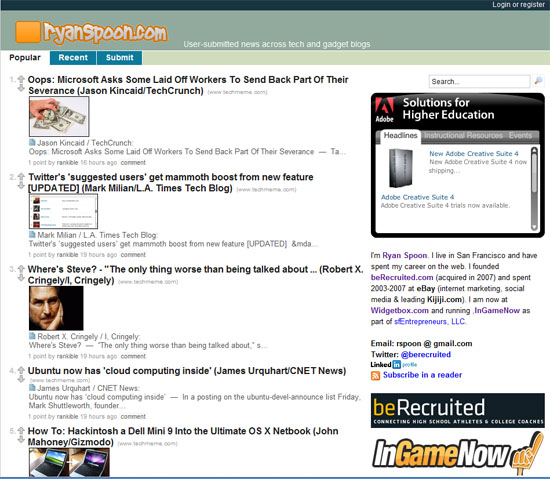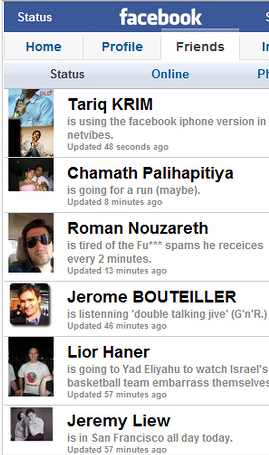1. GMail
The improved Gmail iPhone site is just that: improved. But a true GMail iPhone App would allow fuller cusotmizations, run faster, better integrate calendars and contacts... and soon utilize the new push notification systems of iPhone 3.0.
2. Google Reader / RSS
I use my iPhone as much for email as I do for content consumption. A Google Reader App would instantly be my starting point for iPhone-based web browsing. It would also increase my activity on Reader - particularly the social aspects (sharing, commenting, etc).
3. AdWords / AdSense
Ever been without a computer and needed data associated with AdWords or AdSense? Happens to me all the time... Better yet, the ability to lightly manage campaigns (particularly with AdWords).
4. Facebook Connect + iTunes & App Store
This is a pipe dream, but I would love an Apple built app that, via Facebook Connect, created personalized histories and storefronts for iTunes and the App Store. I find both stores increasingly unusable due to the overwhelming inventory... Facebook Connect is the solution.
5. ESPN Fantasy
Is there a better use case for an iPhone App? Fantasy sports require on-demand knowledge and management. Fantasy sports players would never put their iPhone down again.
6. FriendFeed
Perhaps this would be solved for me by a Google Reader App... but FriendFeed would provide more social functionality and would certainly make me a more loyal, active user.
7. Techmeme
I visit Techmeme daily. It is particularly difficult to navigate on the iPhone. A simple iPhone App would make the on-Techmeme / off-Techmeme navigation more efficient. It would also allow for history and search functionality.
8. Starbucks
I drink a lot of coffee and use a lot of Starbucks' free wifi. Some sort of location finding application that provided coupons and incentives would be very appetizing.
9. MLB.TV
MLB.tv is my favorite product of 2009: amazing HD streaming quality with every conceivable feature request (fantasy tracking, four-game split screens, DVR controls, etc). I would pay an additional $10-$20 to get the streaming on my iPhone (when 3.0 arrives).
10. Google Analytics
Makes total sense. All I need is basic statistics.
11. Aardvark
I love Aardvark... but my most frequent use-case is when I am away from my computer. With an iPhone App, I would use Aardvark far more routinely and it would be my Q&A service of choice (perhaps replacing Yelp and others on mobile).
12. Wordpress.org
To the best of my knowledge, there is not an equivalent of the great Wordpress.com iPhone App for blogs running Wordpress.org... if there is, please let me know. If there isn't, please build it.
13. USPS Tracking
The FedEx App is terrific and solves a big need - and with 3.0 it will be even better. I would love the same for USPS (but certainly do not expect this to be built!).






